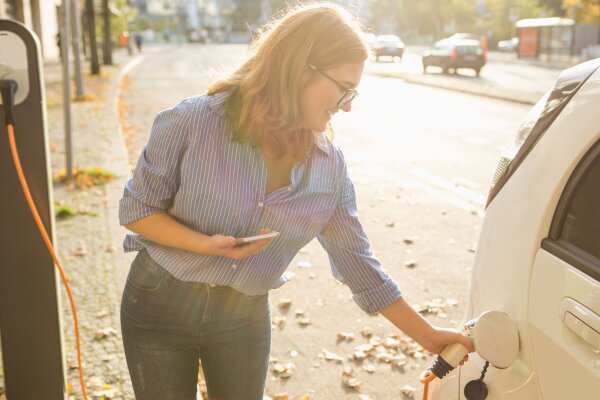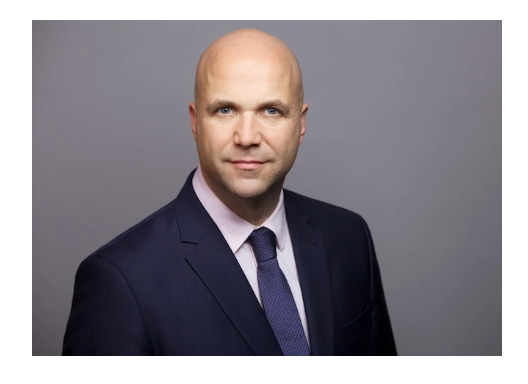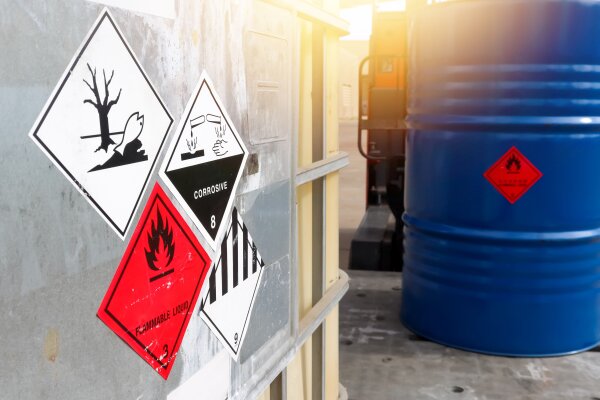Rethinking mobility: with e-cars on the way to a smart, sustainable lifestyle

Germany continues to pick up speed when it comes to electromobility. Last year, for example, around 400,000 new registrations of electric cars were recorded, according to the "Electric Mobility Index" published by management consultants Roland Berger. By comparison, that number was 119,000 in 2019. Jörg Welke, Innovation Project Manager at the Berlin Agency for Electromobility eMO, which is part of the business development company Berlin Partner, explains to us why it is so important that the future is increasingly focused on e-mobility and what else we should know about the sustainable means of transportation.
"E-mobility is the only way to zero-emission locomotion" - Our interview with Jörg Welke from the Berlin Agency for Electromobility.
About Jörg Welke
Jörg Welke has been Innovation Project Manager at the Berlin Agency for Electromobility eMO/Berlin Partner für Wirtschaft und Technologie GmbH since 2018. Before that, he was already responsible for eMO's press and public relations for five years. Until 2013 he worked at the Independent Institute for Environmental Issues e.V. UfU., the project SPREE2011 and from 2003 to 2006 as press officer of the organization International Physicians for the Prevention of Nuclear War.
From 1995 to 2002 he was responsible for the on-air promotion of the television station n-tv in Berlin. Jörg Welke studied modern and contemporary history and German language and literature at the Humboldt University of Berlin and political science at the Free University of Berlin (Magister 2000).

Mr. Welke, first of all, thank you very much for taking the time to answer a few questions about electromobility. In our first issue on the subject of e-mobility, we would first like to get to the bottom of the basics or background to the new, modern way of driving.
Let's start with the question of why the topic of electromobility has gained so much relevance, especially in recent years. Why have we seen such an increase in the importance of e-mobility in recent years?
Jörg Welke: Aspects such as climate protection and a sustainable lifestyle are the focus here. Combustion engines have had their day. People are increasingly focusing on sustainability in their everyday lives and in many areas are choosing alternatives that are kinder to the planet. When it comes to getting around, we believe that e-mobility is the only way to achieve emission-free mobility. This is because renewable energies can be used to power the vehicles - something that is not possible with internal combustion engines.
The German government is also insisting on reducing pollutant emissions and is increasingly promoting e-mobility. Many cities and municipalities are also focusing on sustainability and want to become emission-free. As a result, the topic has become a high priority in recent years - both in politics and in society.
Let's talk about "emission-free driving." Here, challenges still loom in some areas. For example, in the total switch to "green driving" with renewable energies or, for example, in the production of batteries. Where are we now and where do you see challenges?
Jörg Welke: As a rule, publicly funded charging stations have to be supplied with renewable electricity. This is usually a funding condition at the state level as well as in national and European funding programs. In addition, it can be stated that all those who already drive an e-car or have had experience with this type of transportation for several years are confident in dealing with the topic and its application and have a very high level of knowledge due to intrinsic motivation alone. The goal, of course, is to motivate many more people to embrace e-mobility in the future. To address the aforementioned challenge regarding the production of the battery: Here, too, we are on the right track. Although the production of batteries is very energy-intensive, the debate surrounding this has led to manufacturers also making efforts to make the production of vehicles CO2-free. Incidentally, harmful emissions are also released during the production of all kinds of consumer goods.
Now the question is, where will we get the energy in the future? To find a solution here, we need to dive into the value chains and evaluate at what point we can rely more on renewable energy in the future or reduce CO2 emissions. Since this has never been done before for all other everyday products, e-cars count as a driver here to find a way to integrate much more renewable energy into production chains in the future.
As they say, this angle has been the catalyst for thinking more about promoting sustainable production chains - not just among manufacturers themselves, but also in government. The latter is planning to achieve climate neutrality in 2050, and e-mobility plays a very big role in this context. What are the goals in terms of research and realization that would have to be achieved in the coming years - and by what means is this to be accomplished?
Jörg Welke: Industry and research are working at full speed to develop the best possible recycling solutions so that, in the end, we can also be as climate-friendly as possible here. As a result, we can already talk about a 90 to 95 percent recycling rate here. Certainly, there is still work to be done here and, of course, work needs to be done on the production of the batteries, but the development would not show such a strong upward trend if we did not have e-mobility.
At the same time as decarbonizing the drive system, however, we need to think about how we can create an intelligent system that is worthy of the name "traffic turnaround. After all, it's not enough just to replace one drive system with another. To make cities livable, we need networking, partial automation and, above all, fewer cars on the roads. This also includes the joint use of vehicles in sharing. A long learning process is certainly still needed here.
It's definitely a big learning process. What do you think we need to do to "get people used to" this way of thinking and the modern way of getting around so that they can or want to actually use all the new options in the future?
Jörg Welke: When it comes to mobility in particular, we humans are creatures of habit. We want to get from A to B as quickly and comfortably as possible without giving it much thought. Changing routines in this area is very difficult. We need attractive alternatives that help us get away from the private car.
For example, many people lack "sufficient" charging stations in their area. Especially in more rural areas, these are still rather sparse. This may be one of the factors why the people concerned are more likely to refrain from buying an e-car than to get one. How do you see this? To what extent do we still need to work on the infrastructure here?
Jörg Welke: This is a very important point that is already being worked on. The EU Commission recommends a quota of one charging point per ten electric cars. A quota that is already being met in major cities like Berlin. I know that many people who do not (yet) have an e-car have received the impression that there are too few of these stations. Subjectively, that is certainly often the case, which is why we need to keep working on it.
We need more stations and better infrastructure. In addition, it's not just a matter of installing stations in every street and corner of the city, but also of creating charging parking spaces, for example, or setting up the stations at central points such as supermarkets, gas stations, or in private company parking lots, etc. 85 percent of charging takes place at home or at work. However, the infrastructure should provide a good middle ground of private and public stations. We definitely still need smart solutions here.
Finally, I would like to come back to the aspect of sustainability. Using energy generation from renewable sources such as wind farms, solar energy, etc. to "feed" the e-cars would actually be the optimal way to go in terms of sustainability, wouldn't it?
Jörg Welke: Yes, in principle it would. But we need more opportunities for "shared mobility" first of all, especially in the big cities - because it doesn't move us forward if we consume so many resources for the production of new vehicles, only for one person to ride in it in the end. The goal must be to transport more people together at the same time with new modern means of transportation than to have the same amount of cars again as we already have. It won't get us much further just because we're suddenly using renewable energy for everything. For us to be sustainable, we first have to reduce - only that is ultimately smart and efficient.
Thank you very much for the detailed interview Mr. Welke.
Video: medsolutTV - An introduction to e-mobility
In the first episode of our new e-mobility report, our medsolutTV host Vincent Schneider takes you along and explores the beginnings of e-mobility, among other things, he also talks to Jörg Welke from eMO. Learn all about the background, the advantages but also the downsides of our modern way of transportation. See for yourself:
Do you have comments or questions about the topic or would you like to share a topic suggestion for our upcoming posts as well as our YouTube channel? Then don't hesitate to contact us at any time. We openly accept your suggestions.




